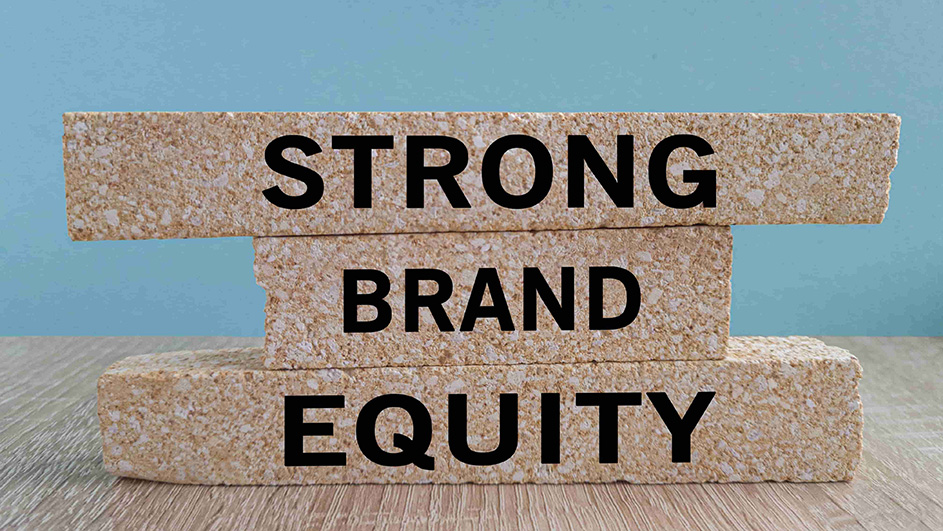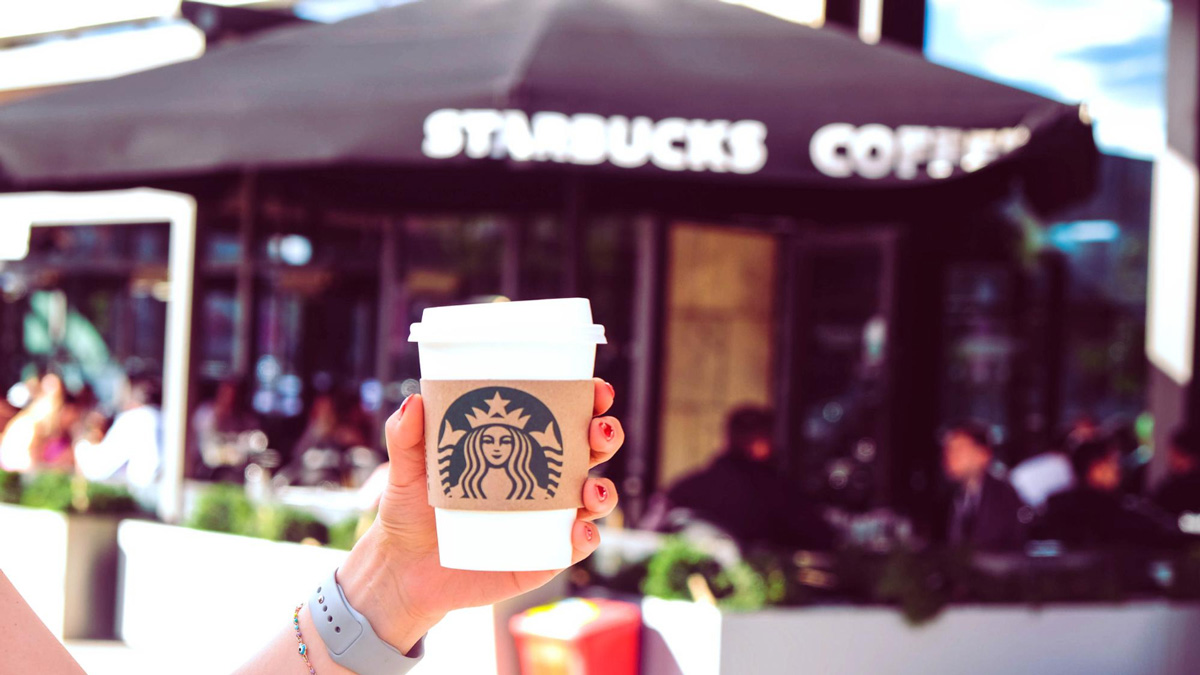
Brand recall refers to the ability of individuals to spontaneously remember a particular brand when prompted without any prior exposure. It measures how well your brand sticks in customers’ minds.
When customers need a specific product or service, their minds effortlessly recall the associated brand names. This process impacts decision-making and consumer behavior. So, how can you ensure that your brand captures attention among the noise and captures the attention it deserves? Let’s explore the nuances of brand recall together.
What Is Brand Recall?
According to Dew and Kwon “if you hear a product category, such as clothing, and it makes you think of certain brands, this process is known as brand recall.”
Generally speaking, brand recall is a phenomenon in which a person may recall a brand’s name or identity after being provided with a broad suggestion or category related to the brand’s products or services. For example, while discussing soda, Coca-Cola may be the first brand that comes to mind.
Brand recall is a critical component and level of brand awareness, indicating the effectiveness of a brand’s marketing efforts and its resonance with consumers. It’s not just about recognizing a brand; it’s about remembering it at the right moment and driving purchasing choices.
In other words, brand recognition sets the stage for brand recall later in the process. As customers come across your brand repeatedly through various channels, it becomes more familiar to them, gradually moving from recognition to active recall.
Brand recall shows a brand’s ability to leave a lasting impression on customers through advertisements, word-of-mouth, or personal experiences. This spontaneous remembering demonstrates the strength of your brand’s presence in the customer’s mind and its capacity to compete in a crowded marketplace. The more effectively your brand embeds itself in the customers’ memories, the higher the likelihood they will choose you over competitors. Brand recall can be divided into two categories: aided brand recall and unaided brand recall. We’ll delve into the specifics of each type in the upcoming section.
Aided Brand Recall
Aided brand recall refers to customers’ ability to remember your brand when provided with cues or hints. It could involve showing them your brand logo and slogan or mentioning specific product attributes.
It’s like giving them a nudge to remember your brand. Aided recall is particularly useful when customers may not spontaneously recall your brand, but with the right cues, they can quickly connect it to your products or services.
By strategically using aided recall techniques in your marketing campaigns, you can reinforce brand recognition and guarantee that your brand remains at the forefront of consumers’ minds.
It can be achieved through consistent branding across various channels, such as advertising, packaging, and digital media, to create a cohesive and memorable brand image.
Ultimately, aided brand recall is valuable for strengthening your brand’s visibility and influencing consumer purchasing decisions.
Unaided Brand Recall
Unaided brand recall, on the other hand, occurs when customers spontaneously remember your brand without any external hints or cues. Your brand name effortlessly pops into their minds, showing a strong and lasting impression.
Unaided recall implies deeper brand connection and loyalty, demonstrating that your brand has significantly impacted consumers’ minds.
Achieving unaided brand recall requires consistent efforts to create memorable brand experiences and build strong emotional connections with your target audience.
It can be achieved by delivering exceptional products, providing outstanding customer service, and engaging in meaningful brand storytelling.
By enhancing unaided brand recall, you can cultivate a loyal customer base who actively seeks out your brand and becomes advocates for your business, driving long-term success and growth.
Brand Recall vs. Brand Awareness
Once clients can quickly remember your brand, they will experience brand recall, which is a component of brand awareness. It takes place when people can recall your brand name with ease. A solid market position and long-term success are ensured by brand recall.
By incorporating brand recall strategies into your marketing efforts, you can develop a strong brand presence that connects with your target audience and propels sustained success for your business.
In other words, it’s a key part of making people aware of a brand and making sure it lasts. It can build a strong brand presence that appeals to your intended market.
So, dedicating resources to boosting brand recall can increase the likelihood of customers selecting your brand over competitors. Investing in cultivating brand recall can expand your brand’s reach and familiarity, making it easier for customers to recall and engage with your brand across various touchpoints.
Brand Recall Benefits
Brand recall, the ability of customers to remember your brand, is significant in shaping consumer perceptions and driving purchasing decisions. Here, we’ll explore the significance of brand recall and how you can use it to create a lasting impact on your target audience and drive business success.
Customer Loyalty
Customers who can easily remember your brand are more likely to develop a sense of trust and familiarity, resulting in recurring purchases and long-term partnerships with your company. By consistently delivering positive experiences, you can cultivate a loyal customer base that actively chooses your brand over competitors, which will drive sustainable growth and profitability for your business.
Increased Revenue
Brand recall plays a crucial role in revenue generation, as it enhances the likelihood of consumers preferring your brand to others. When customers easily remember your brand, they’re more likely to buy from you, resulting in boosted sales and greater revenue.
Investing in strategies that enhance brand recall, such as effective branding, advertising, and customer engagement initiatives, can maximize revenue opportunities and drive business growth over time.
Increased Market Share
Brand recall elevates your brand’s visibility and preference among consumers. When your brand is easily remembered, it stands out in the crowded marketplace, attracting more attention and interest from potential customers.
The increased brand recall and preference enable you to capture a larger market share, outpace competitors, and position your brand as an industry leader. By prioritizing brand recall in your marketing efforts, you can effectively position your business for success and growth in the competitive marketplace.
Brand Equity
When customers consistently recall your brand positively, they develop favorable associations and perceptions about your products or services. As a result, your brand’s perceived value and trustworthiness are enhanced in customers’ minds.

This positive brand image drives customer loyalty and preference, allowing you to command premium pricing and maintain a broader market presence.
By building strong brand equity through effective brand recall strategies, you can establish your brand as a trusted authority in your industry, driving long-term success and profitability for your business.
For a related read, check out: What Is Brand Equity? Definition And Guide
Competitiveness
Brand recall boosts competitiveness by differentiating your brand from competitors and creating a distinct identity that resonates with consumers. When customers can easily remember and recognize your brand, it sets you apart in the market and positions you as a unique choice among alternatives.
This differentiation enables you to attract more attention, capture market share, and fend off competition effectively. Investing in brand recall initiatives that highlight your brand’s unique value proposition and resonate with your target audience can strengthen your competitive position and drive sustained success for your business.
By prioritizing brand recall in your marketing strategies, you can develop a powerful brand presence that deeply connects with your target audience. It ensures long-term profitability and competitiveness for your business.
Brand Recall Examples
Looking at real-life examples of brand recall is a great way to learn how well branding tactics work. Seeing how easily people can remember certain names shows how powerful successful brand recall strategies can be.
Shoes
Thinking about purchasing shoes often conjures up specific brands, such as Adidas, Reebok, or Nike, which frequently come to mind, especially in a sports store or a shopping mall.
These brands have successfully ingrained themselves in consumers’ minds through effective marketing, innovative product offerings, and memorable branding initiatives. Their ability to evoke instant recall makes them top choices. This influences consumer preferences and drives market share.
Automobiles
When it comes to luxury vehicles, specific brands dominate consumers’ minds due to their strong brand recall strategies. For example, when considering premium automobiles, names like Audi, Mercedes, or BMW are likely to come to mind.
These brands have established themselves as leaders in the automotive industry, known for their superior craftsmanship, cutting-edge technology, and prestigious image. Their ability to evoke a sense of luxury and sophistication. It illustrates the power of brand recall in influencing consumer perceptions and driving demand for high-end vehicles.

Carbonated Beverages
In the competitive beverage industry, where distinctive brands dominate customer perception, brand recall is Extremely critical. For example, if you’re seeking a soda, the first thing that comes to mind is probably Pepsi or Coca-Cola.
These companies are valued for their associations with refreshment and enjoyment, as indicated by memorable advertising campaigns, distinctive packaging, and consistent product quality. Their ability to evoke good emotions impacts customer choices and maintains a competitive edge in the beverage business.

Watches
Brands like Swatch, Omega, and Rolex frequently spring to mind when discussing luxurious or costly watches. Customers find these products extremely valuable because of their reputation for accuracy, uniqueness, and craftsmanship.
Their ability to evoke a sense of prestige and sophistication highlights the significance of brand recall in influencing consumer perceptions and driving demand for high-end watches.

By investing in effective branding strategies and delivering exceptional products, these brands have solidified their position as leaders in the luxury watch market. It demonstrates the power of brand recall in driving business success and market dominance.
Examining real-world examples of brand recall highlights the importance of effective branding strategies in influencing consumer perceptions and driving market dominance. Therefore, you can learn from these examples and implement strategies to strengthen your brand recall.
Brand Recall Enhancement Strategies
Effective brand recall strategies are essential for establishing a strong market presence and driving long-term success. Understanding the key strategies can significantly impact your brand’s visibility and awareness. Here are some essential brand recall strategies to consider:
Develop Your Brand Profile, Proposition & Purpose
Developing a clear and compelling brand profile, proposition, and purpose is foundational to enhancing brand recall. Your brand profile includes elements such as your brand’s values, mission, and unique selling points that differentiate it from competitors.
By clearly expressing your brand’s values and the benefits it provides to customers, you can create a distinctive identity that connects with your desired audience. Moreover, explaining your brand’s mission—its purpose beyond financial gains—fosters emotional bonds with consumers and strengthens brand allegiance.
When consumers understand and identify with your brand’s profile, proposition, and purpose, they are more likely to remember and engage with it over time.
Enhance Brand Visibility through Advertising and Packaging
Effective advertising campaigns that communicate your brand’s message and value proposition to your target audience help increase brand awareness and recognition.
In addition, packaging designs that are both visually appealing and expressive of your business’s personality may increase brand recall and influence consumers to make a purchase.
Create a Compelling Brand Story
Crafting a captivating brand story is essential for cultivating an emotional connection with your audience and boosting brand recall. Your brand story should communicate your brand’s values, journey, and the impact it seeks to make in consumers’ lives.
A well-crafted brand story resonates with your target audience, evokes emotion, and creates a memorable impression that sticks with consumers. When consumers can relate to your brand story personally, they are more likely to remember and identify with your brand, leading to increased brand recall and loyalty.
For a related read, check out: Mastering Brand Storytelling: A Comprehensive Guide
Maintain Product or Service Quality
Ensuring high-quality products or services is crucial for building trust and credibility with consumers and enhancing brand recall. Continuously offering products or services that meet or exceed customer expectations reinforces positive associations with your brand and encourages repeat purchases.
When consumers trust the quality and reliability of your offerings, they are more likely to remember and recommend your brand to others, driving brand recall and loyalty.
Ensure Consistent Branding across Channels
Ensuring consistency in branding across all touchpoints is essential for reinforcing brand recognition and recall. Consistent branding ensures consumers encounter a cohesive brand experience across your website, social media platforms, advertising, packaging, and other marketing materials.
Consumers who encounter consistent branding elements such as logos, colors, and messaging are likelier to remember and identify your brand in the marketplace.
Engage Customers through Contests and Events
Engaging customers through interactive contests, events, and experiential marketing initiatives creates memorable brand experiences that enhance brand recall. Hosting contests or events encouraging participation and interaction with your brand fosters positive associations and strengthens brand loyalty. By offering opportunities for customers to engage meaningfully with your brand, you can boost brand recall and stimulate customer engagement and loyalty.
Tap into Interactive and Immersive Technology
Immersive technology represents another powerful strategy for enhancing brand recall. Immersive technologies can create memorable and interactive brand experiences that create a lasting impact on consumers.
Through immersive experiences, consumers can interact with products and services in a way that conventional marketing methods cannot replicate. Whether offering virtual product demonstrations, creating immersive brand activations at events, or developing interactive AR applications, experiential technology enables businesses to captivate audiences and reinforce brand recall.
By immersing consumers in memorable brand experiences that resonate with their emotions and senses, businesses can enhance brand recall and loyalty and drive long-term engagement with their target audience.
At Dream Farm Agency, we offer innovative solutions, including brand mascots and creative digital and interactive media solutions. These tailored offerings are designed to captivate your audience and enhance brand recall.
Whether through immersive virtual environments, interactive storytelling, or engaging digital content, our solutions are strategically crafted to leave a lasting impression on your audience, reinforcing brand recall and fostering brand loyalty.
Utilize Social Media Platforms Effectively
Social media platforms can enhance brand recall and help you interact with your audience, share relevant content, and foster community engagement. Social media provides a direct channel for communicating with your target audience, building relationships, and amplifying your brand message.
According to Finances Online, TikTok and Instagram have been the top platforms influencing purchasing decisions for 45% of Gen Z respondents, followed by YouTube (38%), Facebook (24%), Snapchat (17%), Twitter (14%), and Reddit (7%).

By engaging proactively in conversations, promptly answering customer queries, and sharing valuable content, you can keep your brand top-of-mind and increase brand recall among your followers.
Conduct Brand Audits and Competitive Research
Regularly conducting brand audits and competitive research helps you identify opportunities to strengthen your brand recall strategy. By evaluating your brand’s performance, messaging, and positioning relative to competitors, you can identify gaps and areas for improvement.
Moreover, monitoring competitors’ brand strategies and consumer perceptions can offer valuable ideas about emerging trends and competitive threats. By staying informed and proactive, you can refine your brand strategy and enhance brand recall to maintain a competitive edge in the market.
How to Measure Brand Recall?
Measuring brand recall is crucial to understanding the effectiveness of your branding efforts and consumer awareness. By assessing how well consumers remember and recognize your brand, you can make well-informed decisions to improve brand visibility and engagement. There are several methods commonly used to measure brand recall:
Surveys and Interviews
Conducting surveys and interviews allows you to ask consumers directly about their awareness of your brand. With surveys, you can design targeted questions that probe into consumers’ familiarity with your brand, such as asking them to recall your brand name, logo, tagline, or specific product offerings.
Similarly, interviews offer the opportunity for in-depth conversations where you can investigate consumers’ perceptions and associations with your brand more deeply. Analyzing responses from surveys and interviews provides valuable insights into consumer perceptions and helps identify areas for improvement in your branding strategy.
Online Analytics
Analyzing online data provides valuable insights into the reach and impact of your brand across digital channels. Monitoring online interactions with your brand helps you measure the effectiveness of your digital marketing endeavors and identify trends in consumer behavior.
Website Branded search and Traffic Growth
Monitoring website traffic growth is a valuable metric for assessing brand recall. As more people visit your website, brand awareness and consumer interest increase.
By analyzing trends in website traffic over time, you can identify periods of growth and correlate them with specific marketing initiatives or branding efforts. A steady increase in website traffic suggests that more people actively seek out your brand, demonstrating higher brand recall and engagement levels.
Additionally, tracking website traffic sources, such as search engines, social media, or referral sites, can provide insights into which channels deliver the strongest outcomes in driving brand awareness and recall.
Net Promoter Score (NPS)
The Net Promoter Score (NPS) is a commonly used metric for evaluating customer loyalty and advocacy, indirectly reflecting brand recall. By inquiring about customers’ likelihood to suggest your brand to others on a scale of 0 to 10, you can calculate your NPS and assess the strength of brand recall among your customer base.
Customers who give high ratings (9 or 10) are considered promoters and are likelier to recall and recommend your brand to others, indicating strong brand recall and loyalty. Furthermore, customers who give low ratings (6 or below) are detractors and may have lower brand recall or negative associations with your brand.
Calculating your NPS allows you to track changes in brand recall and loyalty over time and recognize areas for improvement in your branding strategy. NPS provides insights into customer sentiment and brand advocacy.
Viral Coefficient
The viral coefficient is a measurement used to evaluate a product or service’s virality or word-of-mouth potential, which can indicate brand recall. It represents the average number of new customers acquired through referrals from existing customers.
A viral coefficient greater than 1 indicates that each new customer brings in more than one additional customer through word-of-mouth, suggesting strong brand recall and advocacy among your customer base.
Motivating satisfied customers to share their positive experiences with others can increase brand recall and drive organic growth through referrals. Monitoring the viral coefficient allows you to assess the effectiveness of your branding efforts in generating word-of-mouth buzz and expanding brand awareness among potential customers.
Brand equity and loyalty
Brand equity refers to your brand’s perceived value and strength in the marketplace, while brand loyalty reflects the degree of customer commitment and repeat purchases. By tracking metrics such as customer satisfaction, brand preference, and purchase intent, you can assess the strength of your brand recall and its impact on consumer behavior and loyalty.
Surveys and interviews, recognition and recall tests, online analytics, and brand equity and loyalty assessment can provide valuable knowledge of consumer perceptions and behaviors. However, you must continuously monitor and analyze brand recall metrics to refine your branding strategy and strengthen brand awareness, loyalty, and market position.
Conclusion
In conclusion, brand recall is critical to brand awareness, reflecting consumers’ ability to remember and recognize your brand spontaneously. It’s important because it indicates the strength of brand impressions and associations in consumers’ minds, significantly influencing their purchasing decisions.
To measure brand recall effectively, you can utilize various methods such as surveys, recognition and recall tests, online analytics, and brand equity and loyalty assessments. These methods provide valuable insights into consumer perceptions and behaviors, enabling you to measure how consumers recall your brand. However, there are challenges associated with interpreting and utilizing brand recall metrics. For instance, brand recall may not directly indicate purchase intent. It’s important to track recall and key growth metrics to understand your marketing efforts’ effectiveness comprehensively.
As brands aim for top-of-mind awareness and dominance, they face ongoing challenges in maintaining consistent brand impressions, adapting to evolving consumer preferences, and overcoming competitive pressures. It’s important to remember that measuring brand recall is not a one-time task; it’s an ongoing journey. You must continually refine and adapt your strategies to keep up with changing consumer preferences and market trends.
David Aaker, in “Building Strong Brands,” suggests that “Brand equity is a set of brand assets and liabilities linked to a brand, its name, and symbol that add to or subtract from the value provided by a product or service to a firm and/or to that firm’s customers.” Here, Aaker implies that strong brand recall is a critical asset that contributes to the overall equity of a brand.
Remember, brand recall is just one part of the larger brand awareness puzzle, and by consistently refining and adapting your approach, you can ensure your brand remains top-of-mind for consumers. To maintain your pursuit of brand dominance in the ever-changing marketplace, you must continually refine and adapt your strategies, drawing from profound knowledge and expertise.
If you need expert consultation for brand recall or have any queries, don’t hesitate to contact us. Your feedback and insights are valuable to us, so feel free to leave a comment below.

Fareena




brand awareness or brand recall, or brand perception